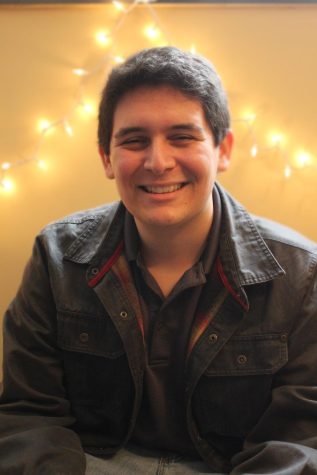Becoming adjusted to the new reality
March 23, 2020
When I woke up Monday morning in preparation for my first Zoom class, it was an odd moment.
Instead of reciting my normal morning routine of getting up, taking a shower, brushing my teeth, combing my hair and all that other fun stuff, I threw on some old clothes, went to my kitchen table and turned on my laptop: boom, I was ready for school.
It was a bit odd too to see my professor in a tiny corner on my computer screen, while my peers all looked at each other through their screens with confusion and anticipation for what was next. It was, in many ways, a very surreal moment, given everything that had transpired the previous week.
It was really the moment the new reality began to sink in for me.
The new reality we find ourselves in is a bit unique to say the least, and for many it is uncharted territory.
For many of us, this is our first experience with online learning, and we are not only doing it from the ease of our homes, but away from our friends and the environment we’ve come to know and be comfortable with.
Not only that, we’re doing it under the gloominess of a pandemic sweeping the world with fear and anxiety, making the whole ordeal a bit more nerve-wracking for some.
It’s strange beyond the method of class delivery; many professors have had to rework their syllabuses and class schedules to reflect the change in the delivery of materials. That has forced some students to become familiarized with a form of learning they’re either new to or aren’t exactly comfortable with.
The big takeaway from the first day or so of this online experiment is that this is the new normal, a phrase and idea not many of us are OK with acknowledging. My opinion is that many students and faculty still want to believe this is temporary, and that this isn’t quickly becoming the way things are. Unfortunately, for the duration of at least this semester, this is indeed the new normal, and we have to at least attempt to become acquainted with this new reality.
For some that may mean extra course work, or it may mean long periods of time sitting at a computer doing school work or listening to a lecture. It also means adjusting to a method that doesn’t suit your learning style. But in order for us to get through this, we need to make some sacrifices and learn to grow as students.
We also need to be there for each other. And learn to practice patience and understanding.
My main hope is that everyone, regardless of major or course-load, is able to find Zoom and the new reality easy to navigate, and the Gannon community as a whole can thrive and excel during this time of great uncertainty.
MICHAEL GUIDO





